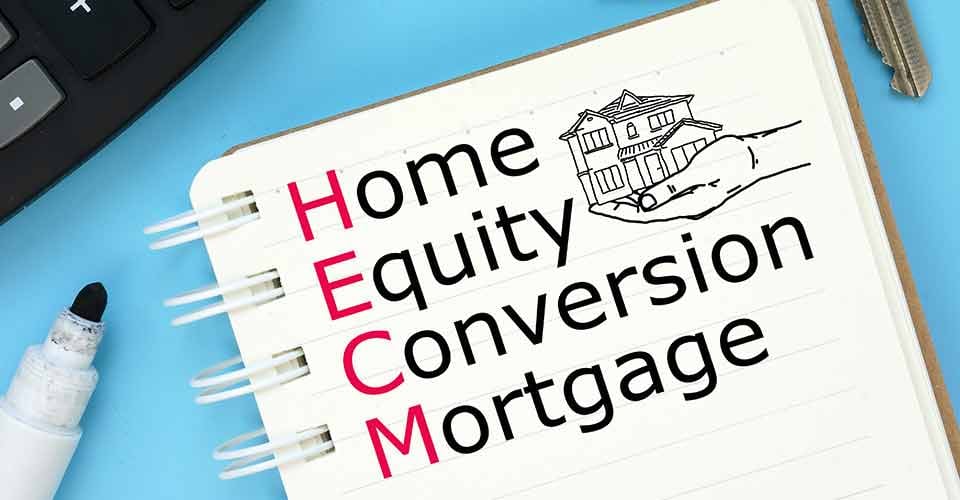Comparing Different Types of Equity Release Mortgages Available
Comparing Different Types of Equity Release Mortgages Available
Blog Article
Checking Out the Different Kinds Of Equity Release Mortgages Available Today
Equity Release home loans present various alternatives for property owners aged 55 and over. equity release mortgages. These financial items deal with different demands and preferences, permitting people to gain access to funds from their building. From life time mortgages to common recognition home mortgages, each kind offers distinct benefits. Recognizing these alternatives is vital for making informed decisions. What elements should one think about when picking one of the most ideal equity Release plan? The details that follow may shed light on this essential subject
Recognizing Equity Release Mortgages
Equity Release mortgages supply home owners, usually those aged 55 and over, with a means to access the value bound in their residential property without requiring to sell it. This monetary choice allows individuals to transform a portion of their home equity into cash, which can be used for different objectives, such as home improvements, settling financial obligations, or funding retirement.Equity Release can take various types, but it essentially entails borrowing versus the value of the home while preserving possession. Homeowners can pick to receive a lump amount or a series of smaller sized repayments, depending on their monetary needs and preferences.Additionally, the quantity available for Release is influenced by the property's value, the homeowner's age, and specific lender requirements. Generally, comprehending equity Release home loans is necessary for homeowners to make educated decisions concerning taking advantage of their home's equity while considering the long-lasting implications.
Lifetime Mortgages
Lifetime home loans stand for one of the most preferred types of equity Release. This monetary product allows property owners, commonly aged 55 or older, to borrow against the worth of their home while maintaining ownership. The loan, which is safeguarded against the home, accrues passion over time but does not need monthly repayments. Instead, the financing and accrued rate of interest are paid back when the homeowner passes away or relocates into long-lasting care.Lifetime mortgages provide versatility, as borrowers can choose to obtain a round figure or choose a drawdown facility, accessing funds as required. Importantly, many plans come with a no-negative-equity warranty, making certain that borrowers will never ever owe greater than the worth of their home. This attribute offers peace of mind, allowing individuals to enjoy their retirement without the worry of diminishing their estate. In general, lifetime home loans work as a sensible alternative for those looking for financial backing in later life.
Home Reversion Program

Drawdown Life Time Mortgages
While lots of house owners look for methods to access their riches, drawdown lifetime mortgages present a versatile choice that enables people to Release funds gradually. This sort of equity Release mortgage makes it possible for homeowners to obtain against the worth of their home while maintaining possession. Unlike traditional life time home mortgages, drawdown plans permit consumers to access a part of their equity upfront and withdraw additional funds as required, approximately an established limit.This feature can be particularly useful for those who desire to handle their funds thoroughly, as it decreases interest accumulation by only charging interest on the quantities attracted. In addition, drawdown life time home mortgages often feature a "no adverse equity warranty," making certain that customers will certainly never ever owe greater than their home's value. This alternative fits senior citizens that want financial safety and security and flexibility, permitting them to satisfy unanticipated costs or maintain their way of life without having to offer their building.
Enhanced Life Time Mortgages
Enhanced Lifetime Mortgages supply unique advantages for qualified home owners looking for to Release equity from their properties. Understanding the eligibility criteria is vital, as it identifies that can take advantage of these specialized fundings. However, it is likewise crucial to examine the possible downsides linked with enhanced alternatives, making sure an all-around viewpoint on their usage.
Eligibility Standards Discussed
Understanding the eligibility requirements for Improved Life time Mortgages is crucial for prospective applicants seeking to access the equity in their homes. Commonly, candidates have to be aged 55 or older, as this age demand is conventional in the equity Release market. Home owners should possess a building valued at a minimum limit, which can differ by lender. Significantly, the home needs to be their key residence and in great problem. Lenders typically evaluate the homeowner's health standing, as specific health and wellness problems might improve qualification and benefits. In addition, applicants must not have existing significant financial debts protected against the building. Fulfilling these standards enables people to check out Enhanced Lifetime Home loans as a feasible option for accessing funds bound in their homes.
Advantages of Enhanced Home Loans
After clarifying the qualification requirements, it ends up being noticeable that Improved Life time Mortgages provide several significant benefits for property owners aiming to leverage their residential property equity. Primarily, they provide access to a larger loan amount compared to basic lifetime home mortgages, profiting those with health and wellness conditions or age-related factors that increase their life expectancy risk. This enhanced loaning capability enables property owners to fulfill various monetary requirements, such as home renovations or retirement costs. Furthermore, these home loans generally come with flexible repayment options, allowing customers to manage their financial resources much more efficiently. The no-negative-equity warranty additionally guarantees that house owners will never ever owe more than their property's value, providing comfort. Generally, Boosted Lifetime Mortgages provide a compelling option for eligible home owners seeking economic services.
Potential Downsides Taken Into Consideration
While Boosted Lifetime Home mortgages supply numerous benefits, potential downsides require careful factor to consider. One substantial issue is the influence on inheritance; the equity launched lowers the value of the estate entrusted to recipients. In addition, these home mortgages can accumulate substantial interest in time, causing a significant financial debt that may go beyond the initial finance quantity. There might also be constraints on residential or commercial property modifications or rental, restricting homeowners' versatility. Additionally, improved items frequently require details health problems, suggesting not all homeowners will qualify. Finally, managing the costs and costs related to these home mortgages can be intricate, possibly leading to unanticipated expenses. Therefore, individuals should extensively analyze their situation and speak with monetary experts prior to proceeding.
Shared Admiration Mortgages
Shared Appreciation Mortgages represent an unique monetary setup that permits house owners to accessibility equity while sharing future property worth increases with the lending institution. This strategy supplies prospective advantages such as minimized monthly repayments, however it likewise features downsides that should be carefully thought about. Comprehending the eligibility requirements is vital for those curious about this alternative.
Principle Summary
Equity Release mortgages, particularly in the type of shared gratitude mortgages, supply property owners a distinct monetary remedy that permits them to accessibility funds by leveraging the value of their residential property. In this arrangement, a lender provides a loan to the property owner, which is usually settled with a share of the home's future gratitude in value. This means that when the home owner offers the residential property or passes away, the loan provider receives a percentage of the enhanced value, instead of just the first loan amount. Shared recognition home loans can be appealing for those seeking to supplement their revenue or financing significant expenditures while preserving ownership of their home. Nonetheless, the economic effects of shared admiration need to be very carefully thought about by potential consumers.
Benefits and Downsides
Although common gratitude home mortgages can offer substantial monetary advantages, they likewise come with notable downsides that possible customers must take into consideration. These mortgages enable house owners to access equity in their residential or commercial properties while sharing a part of any type of future appreciation with the lending institution. This setup can be helpful during times of rising property values, supplying considerable funds without monthly settlements. Nevertheless, the main disadvantage is the possible loss of equity; home owners might end up with considerably minimized inheritance for beneficiaries. In addition, the intricacy of the terms can cause misunderstandings concerning settlement responsibilities and the portion of appreciation owed. Therefore, it is necessary for borrowers to weigh these aspects thoroughly prior to devoting to a shared appreciation mortgage.
Eligibility Needs
What standards must house owners meet to get a common appreciation home loan? Primarily, prospects must be at least 55 Click Here years of ages, ensuring they are within the target market for equity Release products. Furthermore, the property needs to be their primary house and generally valued over a defined minimum limit, usually around ? 100,000. Lenders likewise assess the house owner's monetary situations, consisting of income and outstanding debts, to identify they can take care of the mortgage sensibly. Importantly, the property should remain in good problem and complimentary from substantial lawful encumbrances. House owners must likewise have a clear understanding of the terms, including exactly how admiration will be shared with the lender upon sale or transfer of the residential or commercial property, as this affects total returns.
Selecting the Right Equity Release Alternative

Frequently Asked Inquiries
What Age Do I Required to Be for Equity Release?
The age demand for equity Release usually begins at 55 for the majority of strategies. Some suppliers may offer alternatives for those aged 60 and above, showing varying terms based on individual situations and lender policies.
Will Equity Release Affect My Inheritance?
Equity Release can affect inheritance, as the quantity obtained plus passion decreases the estate's worth. Beneficiaries may get much less than prepared for, relying on the residential property's gratitude and the complete financial obligation at the time of passing.
Can I Relocate Residence With Equity Release?
The concern of moving house with equity Release arises frequently. Typically, people can transfer their equity Release strategy to a brand-new residential or commercial property, but details terms may use, requiring appointment with the lender for advice.
Are There Fees Related To Equity Release Mortgages?
Fees connected with equity Release mortgages can consist of plan charges, evaluation fees, and legal prices. Additionally, there may be early settlement fees, which can influence the overall expense and economic implications for the borrower.
Exactly How Does Equity Release Influence My Tax Circumstance?
Equity Release can influence one's tax scenario by potentially raising taxed income, as released funds are thought about funding. It typically does not incur instant tax obligation responsibilities, making it essential to speak with an economic consultant for individualized advice.
Verdict
In recap, the variety of equity Release home mortgages available today uses home owners aged 55 and over numerous paths to access their residential or commercial property's worth - equity release mortgages. Whether selecting a life time home mortgage, home reversion plan, or other alternatives, each option presents distinctive benefits customized to specific financial requirements. Mindful factor to consider and examination with a financial advisor are necessary to ensure the picked equity Release option lines up with personal objectives and economic situations, inevitably assisting in informed decision-making for a protected monetary future. Equity Release home loans existing various choices for home owners aged 55 and over. Equity Release home mortgages give property owners, usually those aged 55 and over, with a way to access the value tied up in their home without needing to market it. Improved Lifetime Home mortgages use distinct benefits for qualified homeowners seeking to Release equity from their residential or commercial properties. Equity Release mortgages, specifically in the kind of common recognition mortgages, supply home owners an one-of-a-kind financial solution that permits them to gain access to funds by leveraging the worth of their building. In summary, the selection of equity Release home mortgages offered today supplies homeowners aged 55 and over several paths to access their home's worth
Report this page